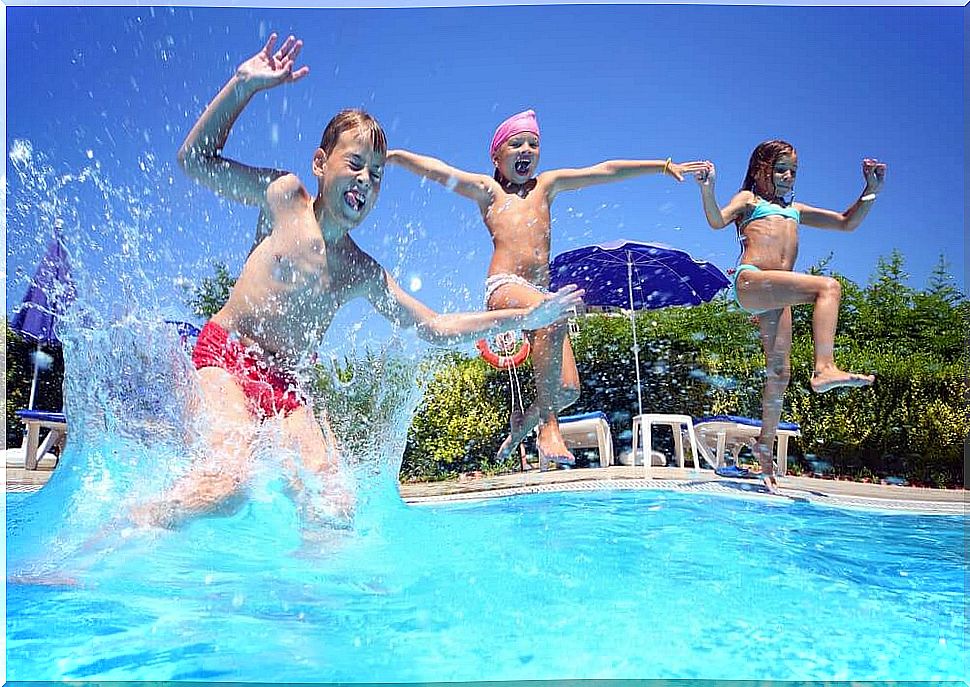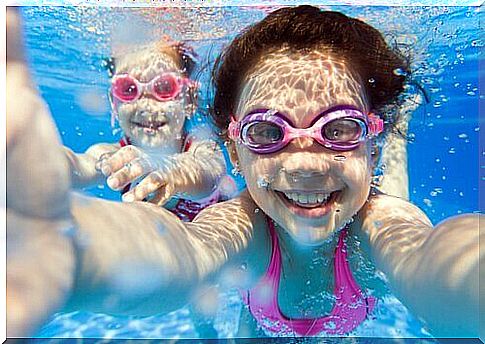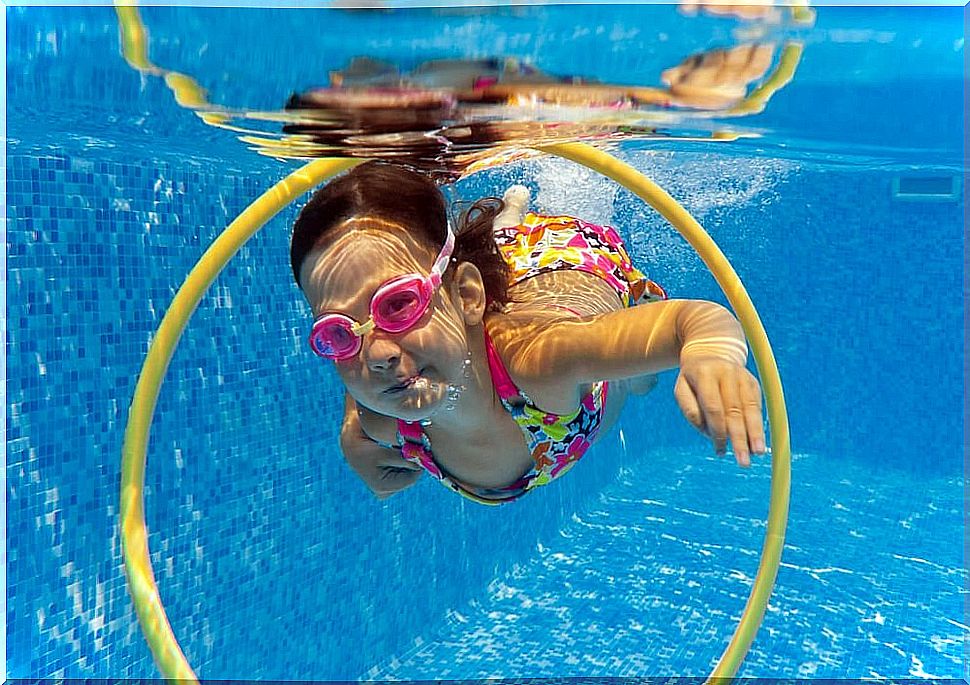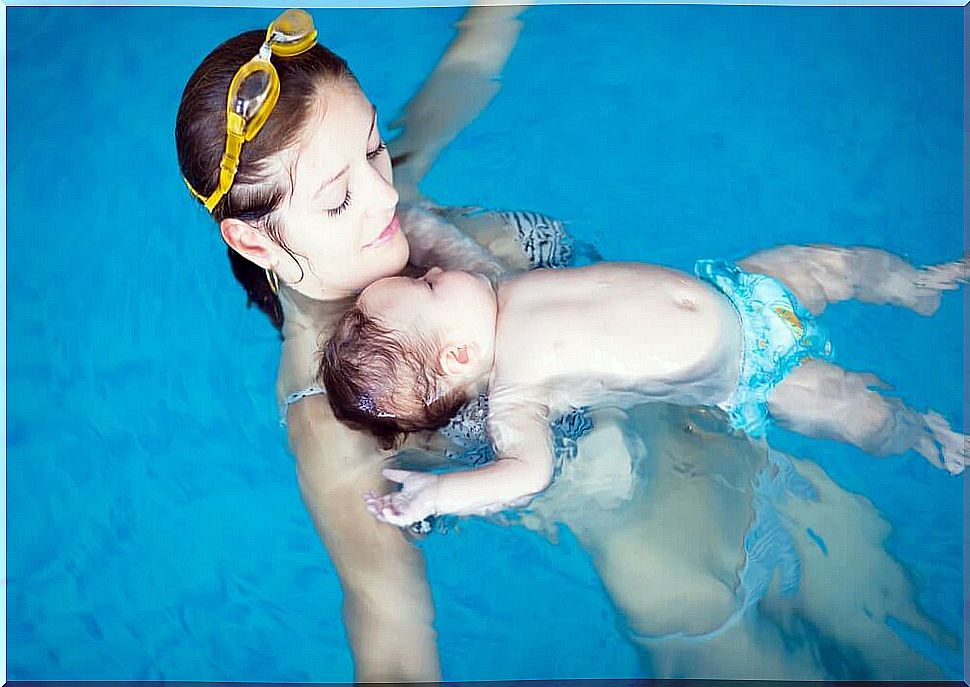Safety Of Your Children At The Pool

The arrival of summer includes, among other options, enjoying a swim in the pool. Swimming and playing in the water is an activity to share with the family, and enjoy free time. However, it is important to take some important steps so that your children are safe in the pool.
It’s not that difficult to avoid accidents in these facilities. Negligence or lack of prudence can have very serious consequences. With a little prevention, it is possible to guarantee the safety of our children, without compromising their pleasure and fun.
fearless precaution
Children under the age of 5 are the most prone to accidents, as they generally do not know how to swim and do not understand the risks involved in these fun places.
For older children, even if they know how to swim, it is important to take a few minutes to understand the rules and preventive measures that must be followed to be safe in the pool. It also makes no sense to prohibit children from having access to the pool due to fear , or parental trauma.

Exercising and playing in the water offers great benefits for your development. If as parents we have any fear that prevents us from interacting in a healthy way with the group, we must attend to and treat it. This way we will not transmit fears to our children.
How to keep your kids safe in the pool
According to a study by the World Health Organization , 16.8% of deaths of children under 18 are caused by drowning. Most drownings occur in children under 5 years of age. The most frequent reasons are carelessness, and not knowing how to swim.
In three minutes and with just 20 centimeters of water, in case the parents don’t notice, an accident can happen that makes a family mourn and leaves indelible consequences. Addressing the following preventative standards is essential for our children to be safe in the pool.
1. Permanent surveillance
Young children cannot bathe alone. Even if they know how to swim, there must be an adult to accompany them. This is also required for children over 5 years of age. The watchful eye of your parents as they bathe or play in the pool will never be excessive.
The fact that they know how to swim and thrive in the pool is no reason to neglect them. The use of buoys or lifeguards helps, but does not guarantee that our children are safe in the pool; Parental attention, on the other hand, guarantees this.
It is also important to consider whether there are security personnel or lifeguards. There are usually pools in public spaces or private pools, but not in residential pools. Likewise, the lifeguard is not the one who should ensure the good behavior of children in the pool, but the parents or responsible adults.
2. Use of buoys, lifeguards, or floats
Floats, boards, lifeguards, or similar, are devices that favor the safety of children while enjoying the pool. It is important to select the appropriate ones according to the child’s age and abilities. Children are not always comfortable using them. If they see other children free from these, they will feel that they can do the same.
It’s up to parents to be firm with the use of these devices if they don’t know how to swim. However, we reiterate, one should not trust. Floats can be very useful if a child has them and falls into the pool. But if these are not of good quality or have a hole, they are no longer effective in safeguarding our children’s health.
3. Safe toys and games
Children don’t need so many toys to have fun in the pool. If you are going to take them, it is important that they are not floating in the pool. This prevents the child from feeling the temptation to go and get it.

You should avoid games around the pool that include running or pushing. Nor should they play “drown”. Children should understand that the use of stairs, trampolines, or slides must be very careful.
4. Educate to prevent
The behavior of children in the pool is the responsibility of the parents. You have to take the time to explain to children what are safe behaviors in the pool and what are not. We can’t expect them to know what safety measures to follow if we don’t teach them.
Children must learn that they cannot jump into the water without first knowing the depth of the pool. Likewise, we must explain to them that they cannot throw themselves on top of other children, that they cannot hold onto another child who is in the water, and that they must not jump into the water near the steps.
In addition, they need to learn that if they see a child drowning, what they should do is quickly notify the adults. And they shouldn’t try to help a drowning child, because as much as they can swim, they don’t have the physical strength or ability to rescue a child in danger.
5. Learn to swim
Swimming is a very complete exercise with great benefits for the overall health of children and adults alike. It’s never too late to learn. Parents who cannot swim can overcome their fears and attend classes with their children. There are even swimming lessons for babies.

However, we must insist: while our children can swim, we must be aware of what happens while they are in or around the pool or playing.
Reflection
If, as a parent, you feel that you need to learn about first aid in the event of drowning, do so. It doesn’t hurt to be preventive in this regard. It’s a knowledge that can allow the family to enjoy a day at the pool more peacefully, but it’s also helpful to help others in case of drowning, and to know how to keep your children safe in the pool.









